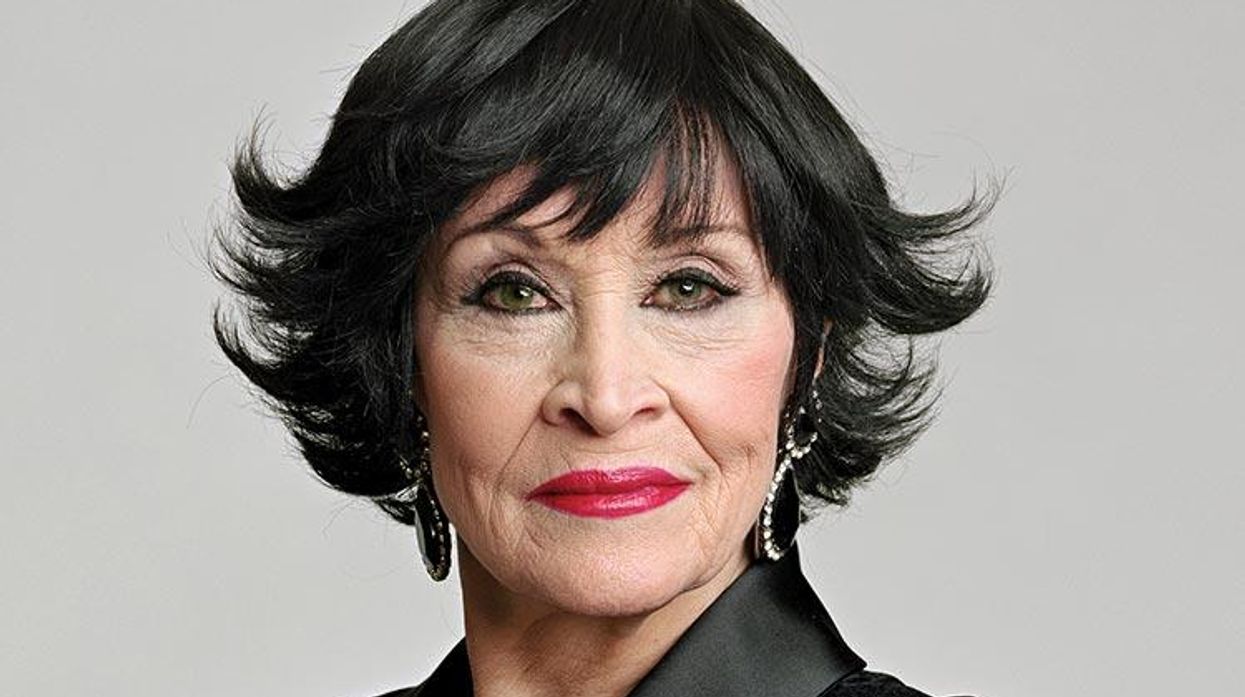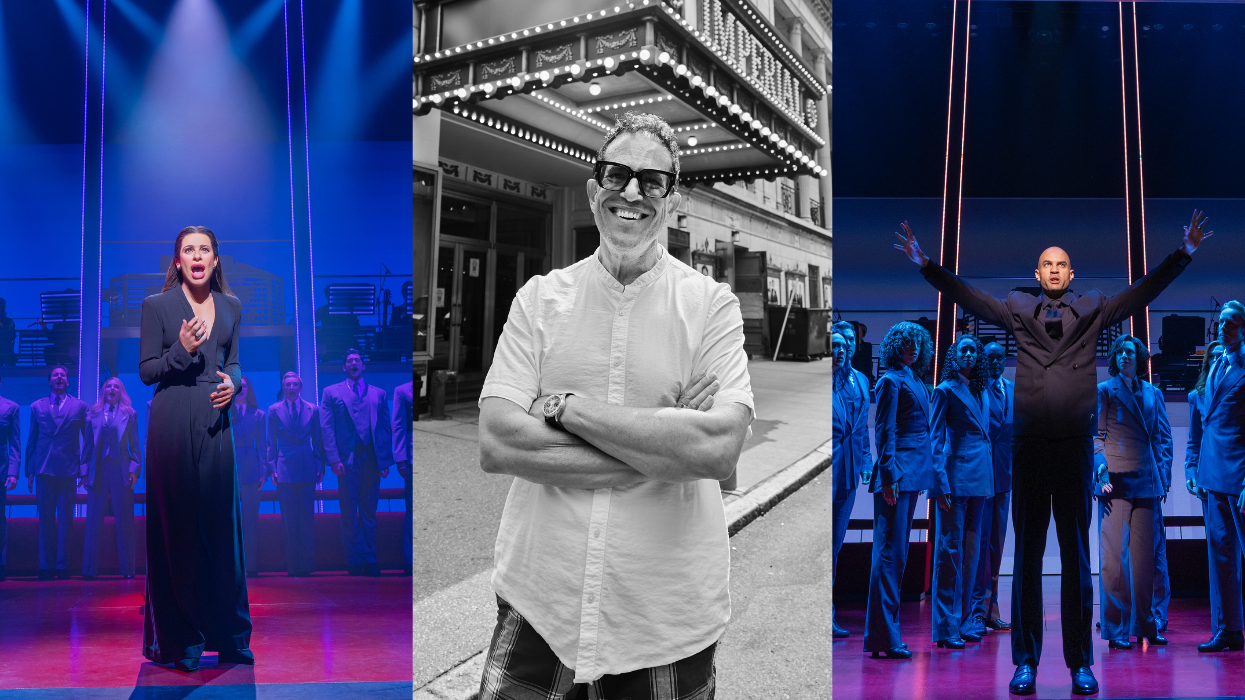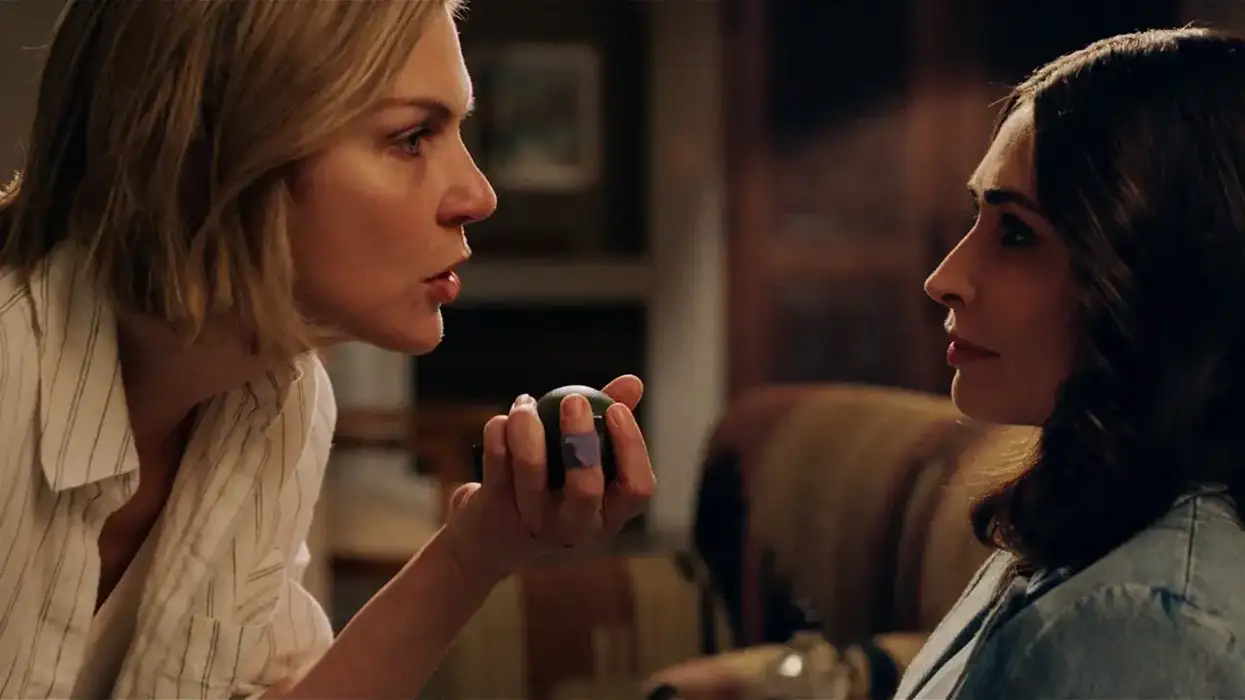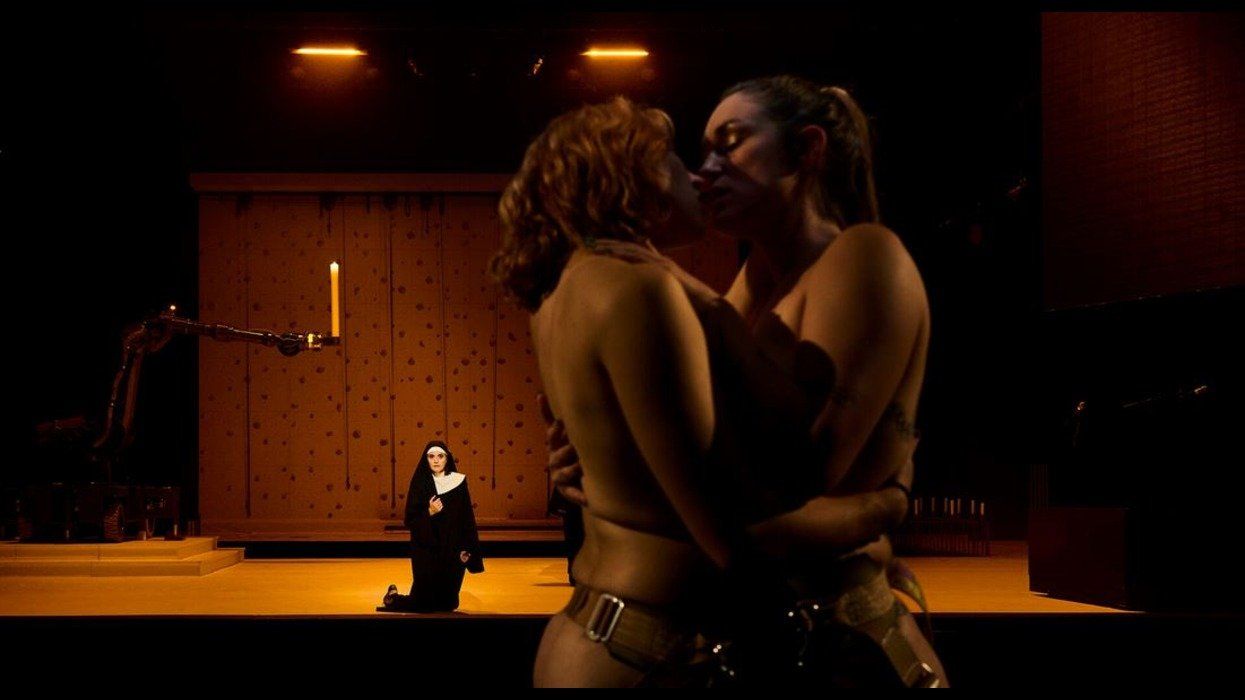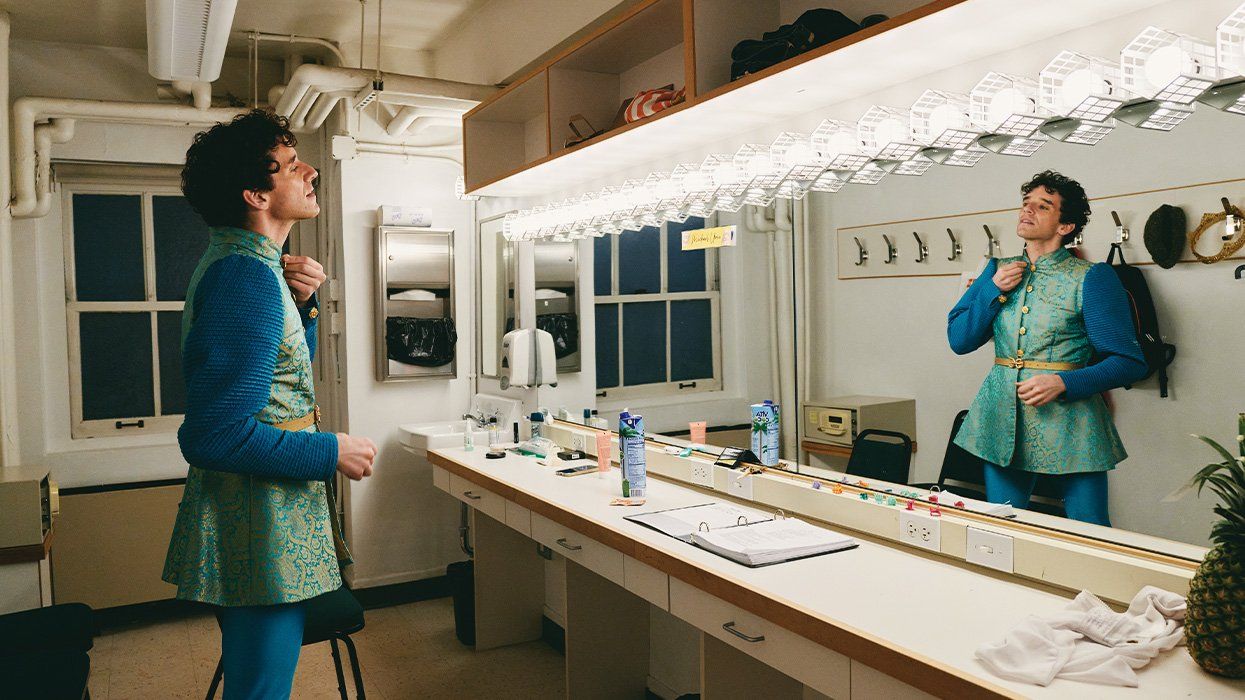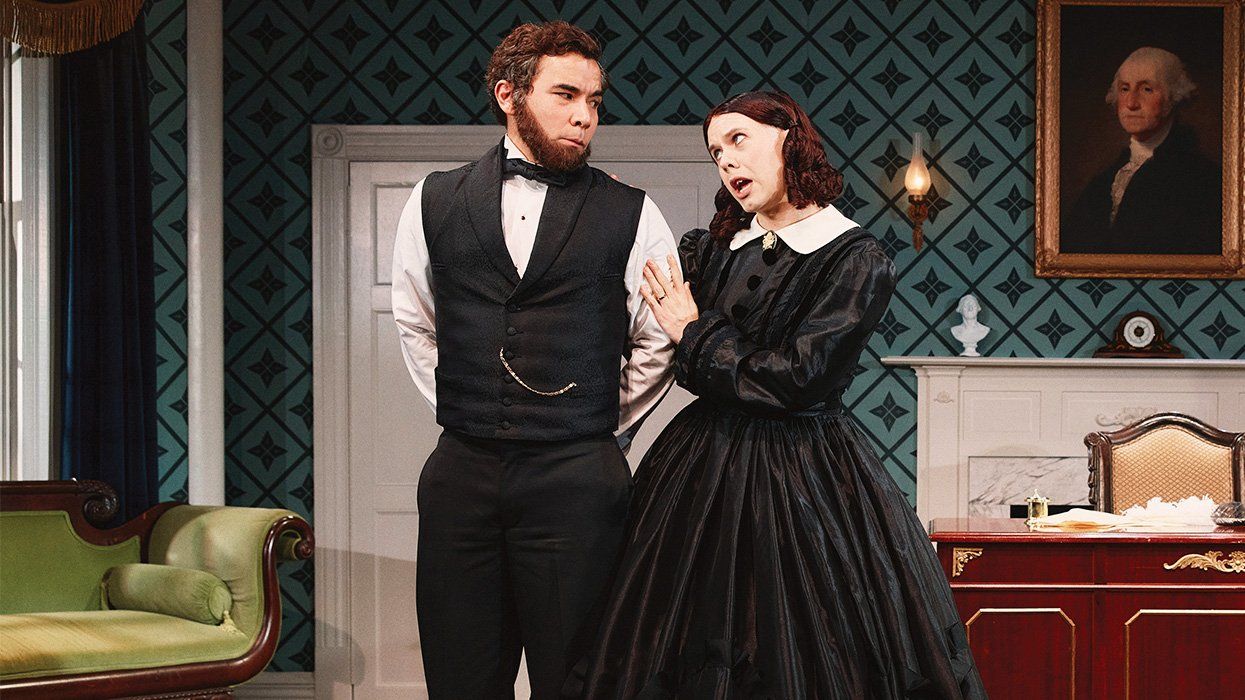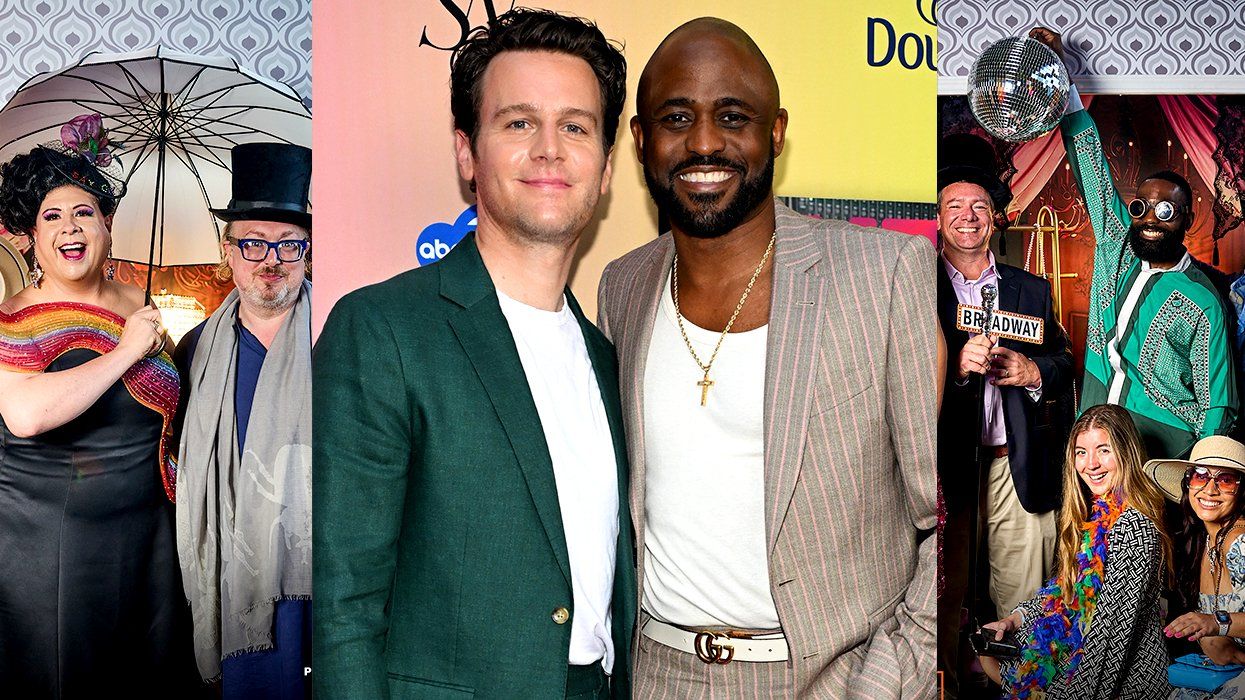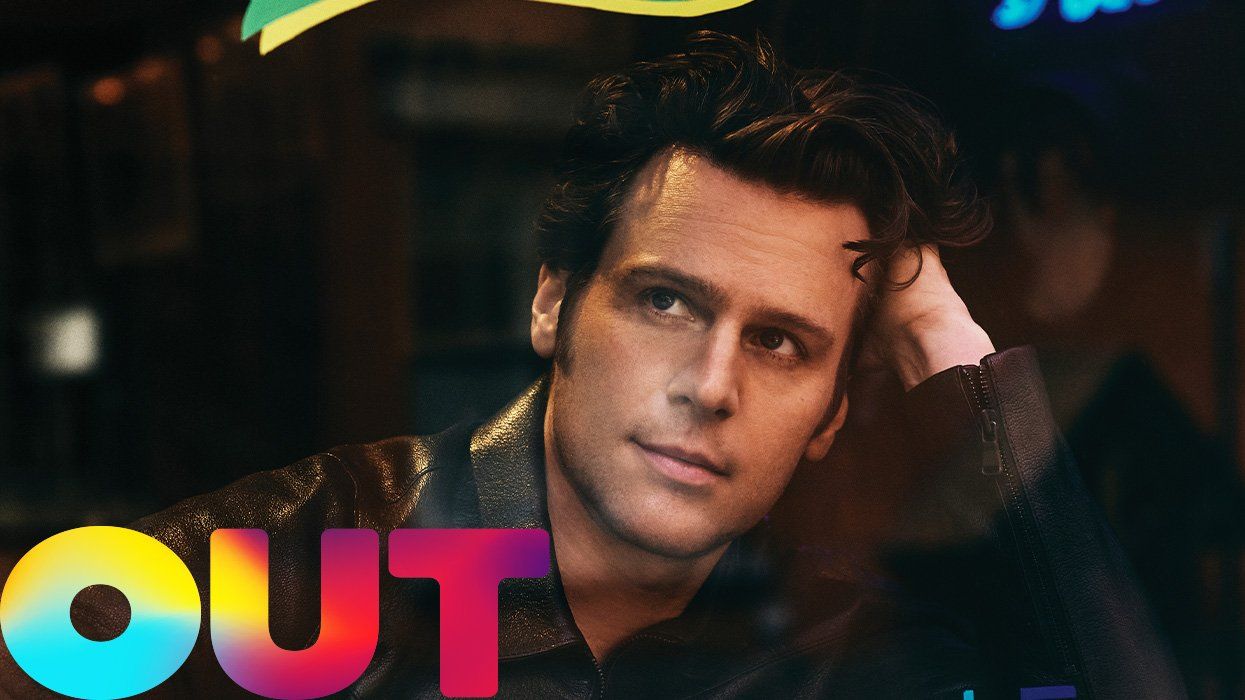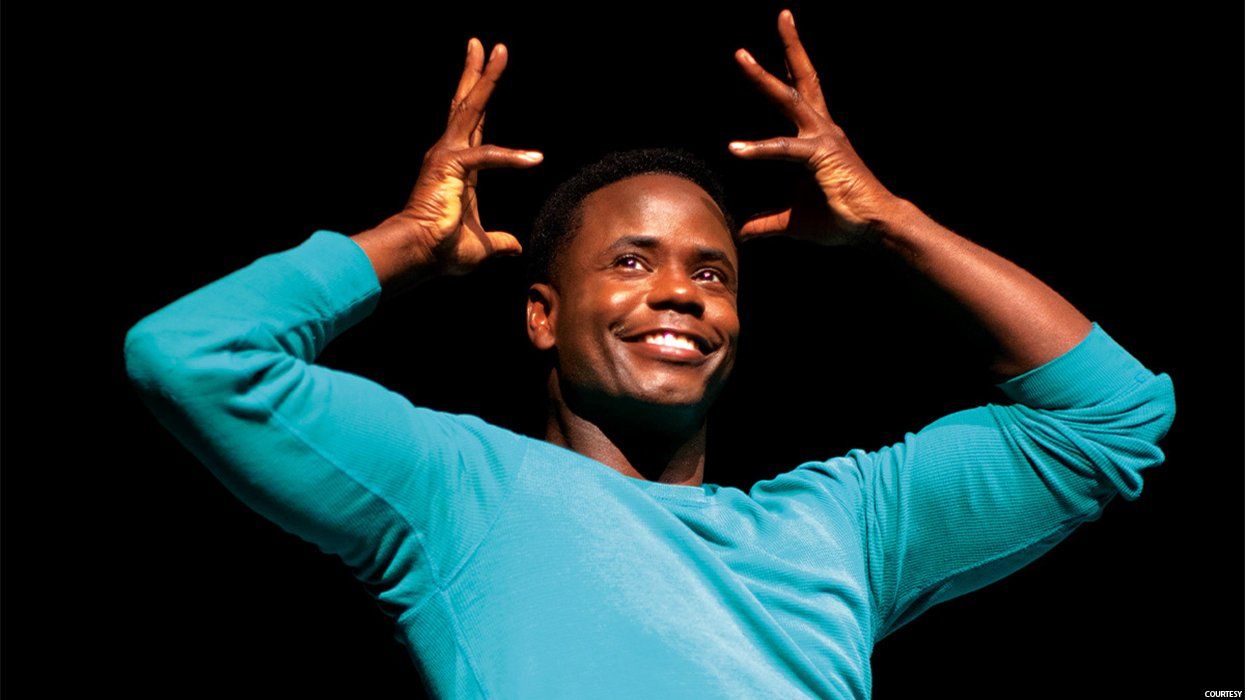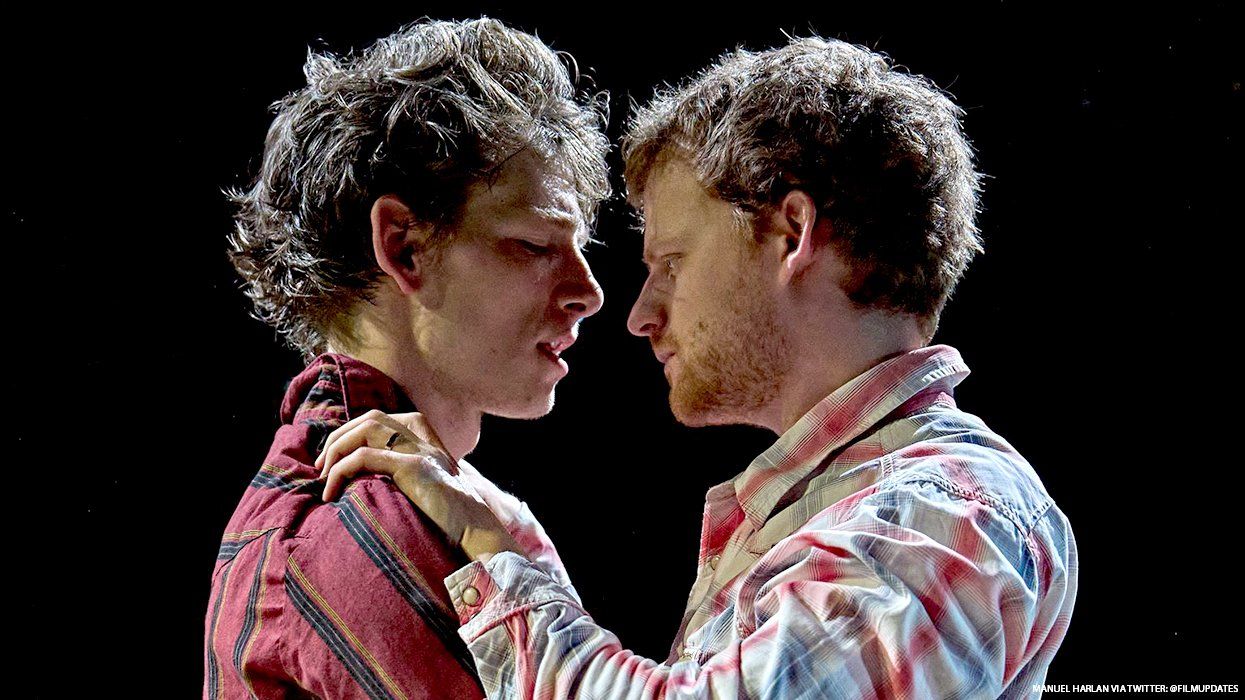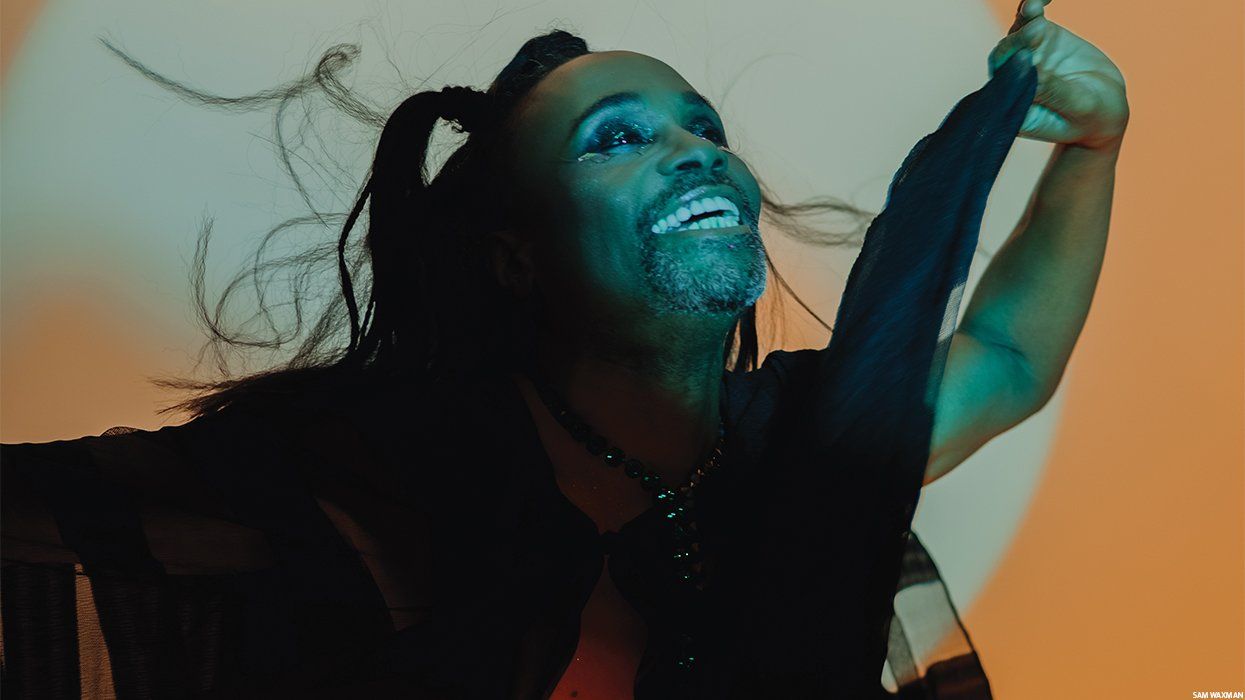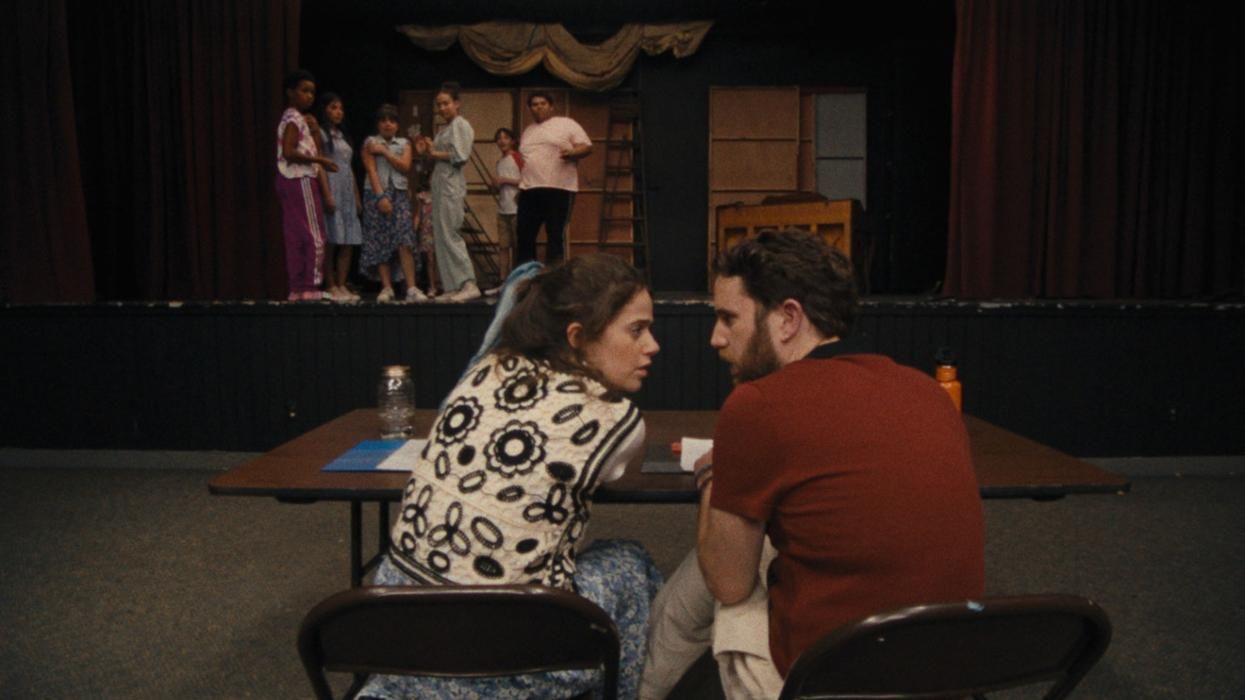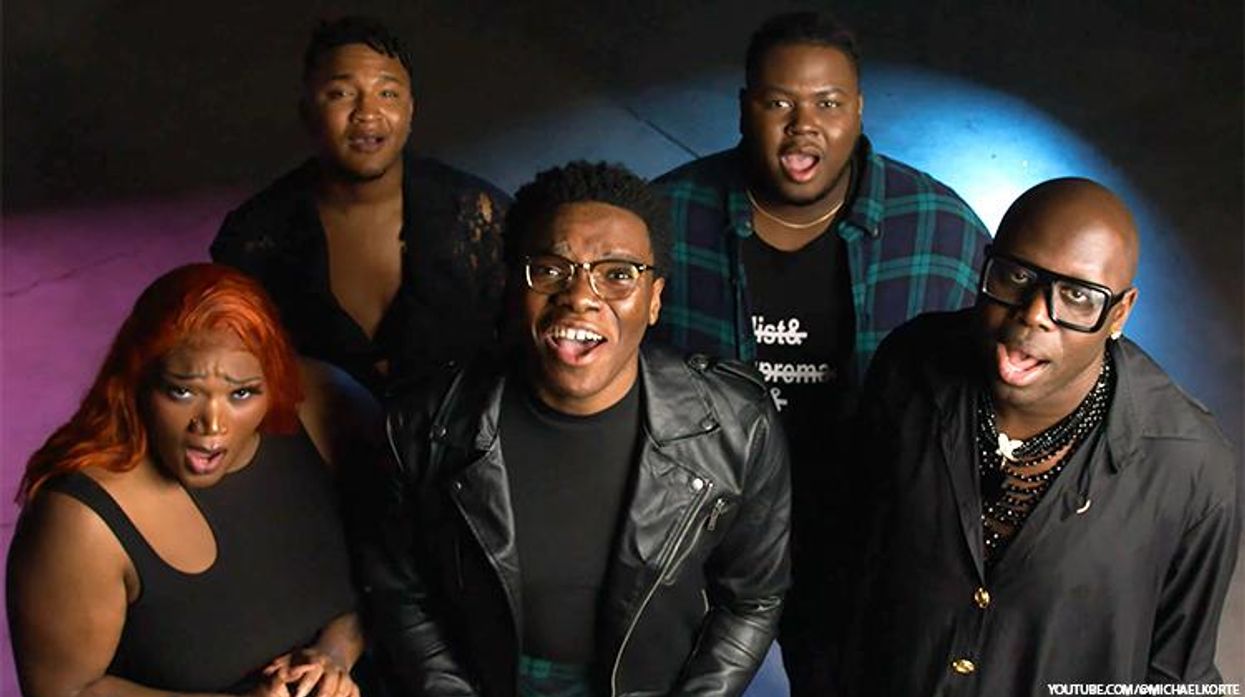For 25 years, OUT has celebrated queer culture. To mark our silver jubilee, we look back at some of the biggest, brightest moments of the past 9,131 days.
In Manuel Puig's 1976 novel Kiss of the Spider Woman, a gay window dresser obsessed with escapist films befriends a straight, leftist revolutionary when they share a South American prison cell. Told with a colorful, pop-art sensibility in long stretches of dialogue, documents, and fictionalized movie reviews, the book inspired a 1985 film that won William Hurt an Oscar and earned a nod for Best Picture--a high bar for future adaptations.
A musical seemed unlikely until the gay lyricist-composer team of Fred Ebb and John Kander (of Cabaret and Chicago fame) corralled legendary producer Hal Prince and playwright Terrence McNally to give it a go. An out-of-town workshop fell flat, but a revived production in London and Toronto earned enough buzz to bring it to Broadway in 1993, where it won Tonys for Best Musical and for the three leads, including a 60-year-old Chita Rivera high kicking in white tie, tails, and a fedora.
A year earlier, Falsettos had brought an intimate gay story to the Great White Way, grappling explicitly with the AIDS crisis. But Spider Woman, in the words of then-New York Times theater critic Frank Rich, was "the first large-scale American musical told from an unapologetic and unsentimental gay point of view." And songs like "You Could Never Shame Me," a love ballad from mother to son, gave gay men the validation many didn't have at home.
Even with its glitzy fantasy numbers and beefy chorus boys, by 1993, Puig's deft meditation on modern gay identity had also become a chilling allegory of gay men's relationship to death.
The blood and bodily violence depicted on page and film read very differently in the pre-cocktail AIDS era. The show's titular seductress was essentially the Angel of Death in drag, and she haunted not just the Broadhurst Theatre but Christopher Street, Chelsea Piers, and the Harlem ball scene. AIDS was her web; everyone could be caught in it.
Despite the show's underlying tragedy, its triumph, as Rich pointed out, was portraying an "uncloseted, unhomogenized, unexceptional gay man who arrives at his own heroic definition of masculinity."
Death wins, but dignity never dies.
(Pictured Above): Chita Rivera, photographed by Timothy Greenfield-Sanders for OUT, April 2011


